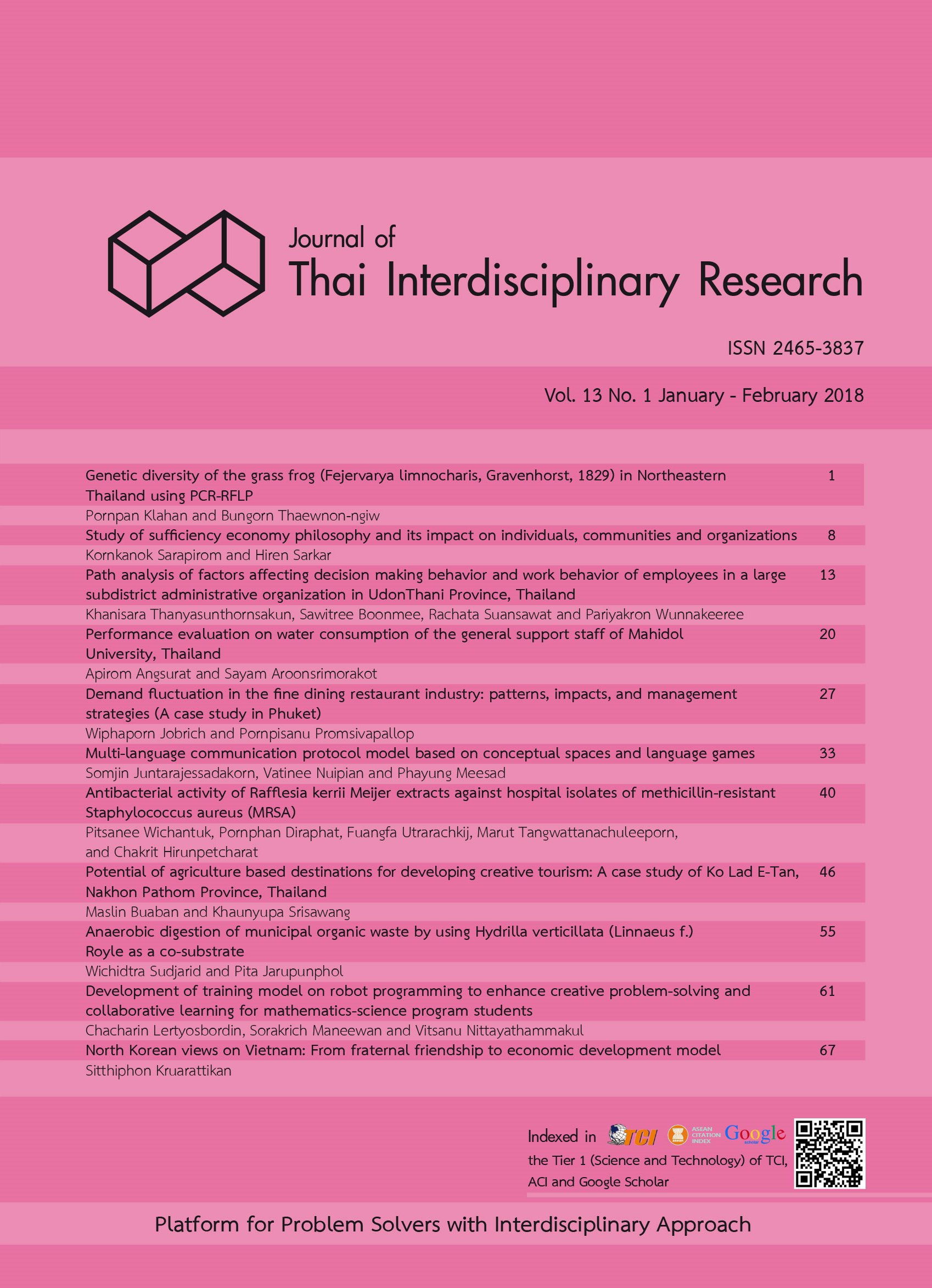Study of sufficiency economy philosophy and its impact on individuals, communities and organizations
Main Article Content
Abstract
By the current world, a capitalist economy is the main economic system that countries around the world use as a compass for developing their countries to reach a desirable growth and wealth. This fashionable mainstream is pretty influential based on its principle and focus of a full freedom for running any desirable economic activities, therefore, the private sectors could play their potential roles for benefit-based aim that contributing to rapid economic growth at the time. Critically, establishing new forms of economic system such as Social Market Economy in Germany so called a Green Economy and participatory economics is extremely required to terminate this exploitation. Thailand as well, His Majesty King Bhumibol Adulyadej had graciously given the Thai people with frameworks of thought, planning and practicing for our nation socio-economic development and growth of all sectors particularly creating a full peace in our Thai society. Consequently, since the past 2 decades, Thailand has adopted the Sufficiency Economy Philosophy (SEP), a philosophy of living a balanced life that can bring the world of change to sustainable economic growth. This research, therefore, the analytical exploration of SEP deployed by the 5 key target groups with best practices; individual, community, school, religious institution, and business sectors. Information gathered by in-depth interview and documentary research. Findings are presented in terms of qualitative and descriptive insights. The results show that diversified self-development lessons are learned and thus concluded as significant supporting and hindering factors for the sufficiency economy movement under the realistic conditions. Concisely, SEP is a credible tool that enables people to acquire favourable gains and benefits from the insight into well-being and real happiness; they have more comprehensive lives as a result of hard working, honesty, diligence, sharing and altruism. With a balanced-way of living, morality lifts up all the studied population’s spirits and shows that living is meaningful phenomenon. Then, all the research results have led to policy suggestions in promoting movement of the royal philosophy at the village level into the more extensive, applicable and with more sustainable direction both as in the way of life for local people and as the way of culture for the Thai society as a whole.


